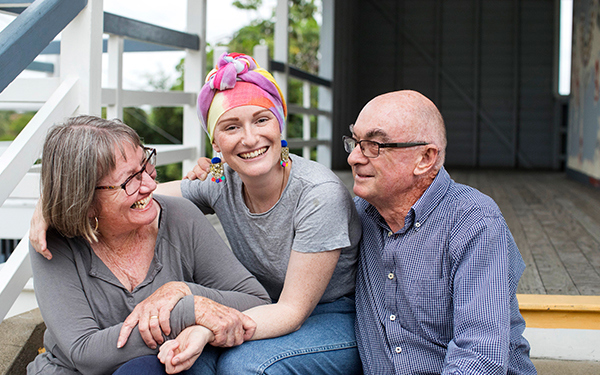Icon Cancer Centre recently hosted a special Ask Dr Icon Q&A, featuring Dr Kelly Teagle (GP and Founder of WellFemme) and Dr Maree Sexton (Radiation Oncologist at Icon Cancer Centre at The Bays), to explore the unique challenges faced by women who experience early onset menopause following cancer treatment.
Dr Kelly Teagle, GP and founder of the telehealth menopause clinic WellFemme, shared her personal journey through early menopause and breast cancer, offering a unique dual perspective as both clinician and patient.
Before I went through menopause myself, I don’t think I really understood it. And before breast cancer, I didn’t know what the treatments could do to me. These have been huge learning experiences.
She emphasised the importance of shared decision-making and individualised care, especially for women who undergo medically or surgically induced menopause. These women often face more severe symptoms and long-term health risks such as osteoporosis and heart disease due to prolonged low estrogen levels.
Radiation Oncologist Dr Maree Sexton shared her clinical insight into how treatments like chemotherapy and radiation can damage ovarian cells, leading to early menopause. She highlighted the mental load for younger women who are not only navigating a cancer diagnosis but also confronting fertility loss and hormonal changes.
These women are at various stages of life, each facing their own set of decisions. It’s a significant additional mental load.
The conversation also explored the psychological impact of early menopause, including feelings of isolation and identity confusion. Dr Teagle noted that younger women often struggle to find relatable support communities, as many online groups cater to older women experiencing natural menopause.
They feel like themselves, a younger person, but now they’re labelled as menopausal. It’s a cognitive dissonance.
Both experts stressed the importance of empowering women with information and encouraging them to advocate for their needs, highlighting the value of open, evidence-based conversations between patients and their healthcare teams.
We need to make sure patients feel informed and supported; no question is a stupid question. If they don’t know the answer or are worried, they should feel confident to ask.
The conversation concluded with practical advice for families and partners supporting loved ones through early menopause. Dr Teagle encouraged open communication and validation, and Dr Sexton reminded listeners that quality of life matters just as much as survival.
Some women say it’s almost worse than having cancer. They need support to deal with the changes.

